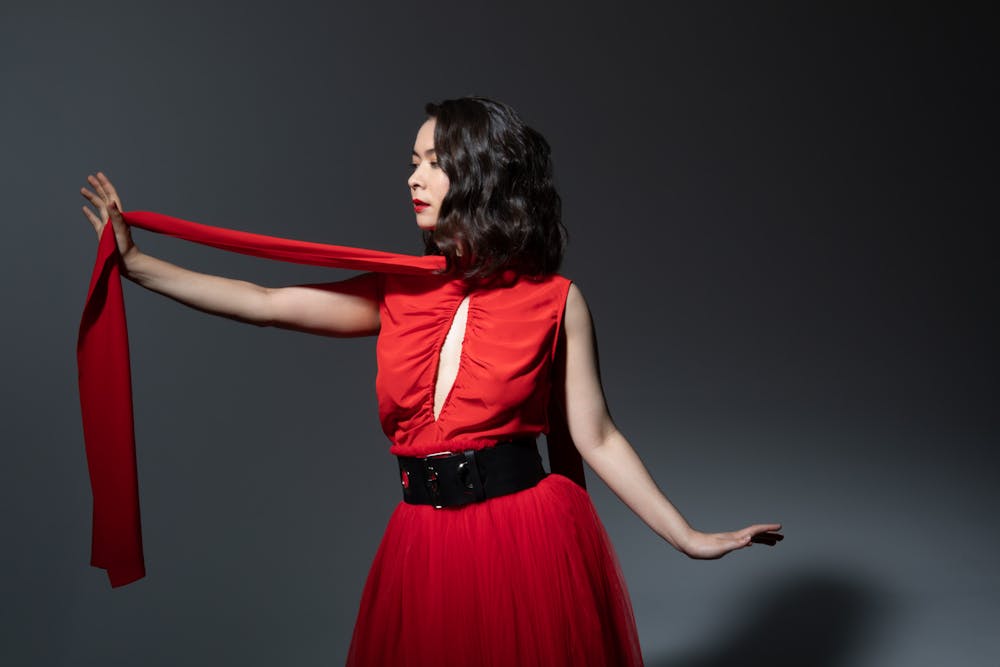In her sixth studio album, “Laurel Hell,” Japanese-American singer-songwriter Mitski poses a haunting question: how can one find worthiness in both romantic relationships and modern hustle culture?
The album title itself channels this question. In an atmospheric opener, “Valentine, Texas,” Mitski invites the listener into this beautiful trap.
“Let’s step carefully into the dark,” Mitski urges. She establishes from the beginning of this album that it will be a transformative, introspective experience, pondering “who will I become tonight?” With cutting lyrics and threads of synth and disco, “Laurel Hell” dissects these themes of dark and self.
Though it may be a misnomer to deem “Laurel Hell” a concept album, each song’s lyrics probe at its central question about worth amidst darkness.
This is especially potent in the lead single, “Working for the Knife.” This is a brooding track, full of cynicism and a reverberating bassline. In it, Mitski ponders the futility of her constant labor: “I used to think I’d be done by twenty / now at twenty-nine the road ahead appears the same / though maybe at thirty I’ll see a way to change / that I’m living for the knife.”
The extent of “the knife’s” pressure is clear by the end of the song when she mourns, “I start the day lying and end with the truth / that I’m dying for the knife.”
Later in the album, in the quiet melancholy of “Everyone,” Mitski describes how she “opened my arms to the dark / I said, ‘take it all, take whatever you want.’” Much like the knife, though, this darkness is a consuming force, as she mourns that “I didn’t know what it would take.”
As these songs confront abstract images like dark or the knife, Mitski constructs a thesis that the current form of the music industry, or perhaps more broadly, capitalism itself, is draining with little reward.
Interestingly, though exploring such elusive concepts, Mitski deviates from a melancholy indie-rock formula she has previously followed. There are echoes of 2016’s “Puberty 2,” particularly in tracks like “Working for the Knife” and “There’s Nothing Left for You,” which swells with massive vocal and guitar riffs. However, ebullient pop pulses through this album, even immediately following some of its most pensive tracks. This is particularly true as the penultimate “I Guess” melts into the closer, “That’s Our Lamp.”
“That’s Our Lamp” surges with bright instrumentation, yet its lyrics leave the listener wondering how such painful thoughts of a break-up could make them want to dance. Similarly, “Should’ve Been Me” bounces like a Hall & Oates hit that has been revamped with some unexpected percussion. Despite being the pinnacle of pop on this album, Mitski still wrangles with her own shortcomings in love, as she repeats the refrain “I haven’t given you what you need / you wanted me, but couldn’t reach me.” While interspersing such energetic pieces through this album, Mitski does not fully divorce herself from the introspection that defines her more traditionally indie work.
“Laurel Hell,” though its title refers to a beautiful entrapment, is a liberating experience for a listener. It invites one to question the systems around them, yet recognizes the importance of dancing amidst this constant thought.





